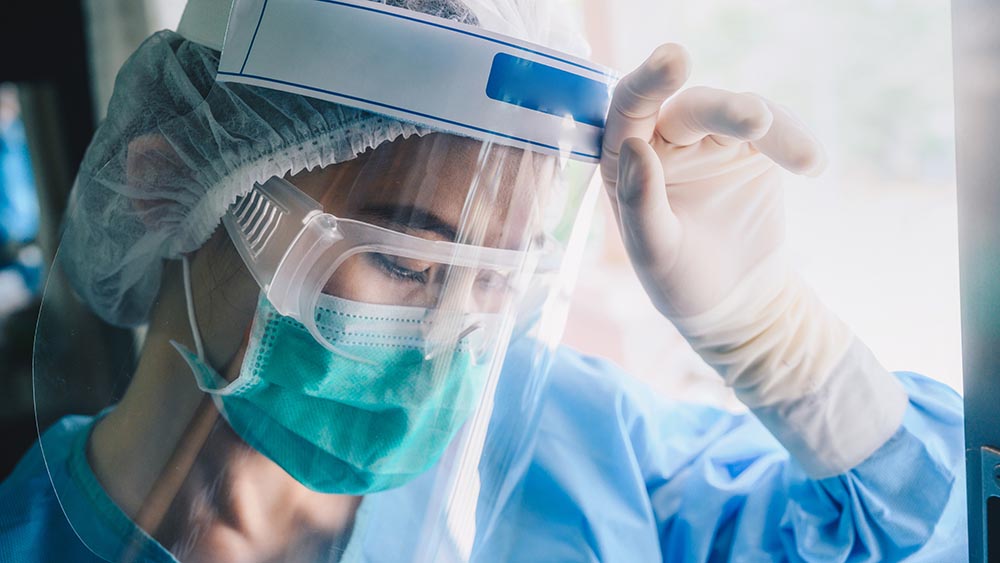YES. From PET bottles to anti-COVID face shields.
After they have fulfilled their original purpose, PET drink bottles are being given the chance for a second life. This has many positive effects on the environment, such as reducing CO2 emissions by more than 50%. Recycled PET (rPET) can be used as raw material for new products such as bottles or films. We at CHT support this process with our expertise and products. As well as this, it is possible to develop products that will make our lives safer and more comfortable. Particularly during the coronavirus pandemic, recycled material offers many advantages.
Used PET bottles as raw material for new products
For starters, rPET can be used to manufacture packaging films that increase the shelf life of food. This means, for example, that families can store more food at home during the coronavirus pandemic and don’t need to go shopping so often. For instance, a CHT customer from Central America collects millions of old PET bottles and uses the recycled material to make these films for food packaging.
Since the beginning of the pandemic, rPET has also been used in a new project to produce face shields to protect against COVID-19.
rPET face shields for protection against coronaviruses
The face shields that are produced as part of this project are designed exclusively for use in biosanitary technology. They help to protect the eyes, nose and mouth and to curb the spread of coronaviruses.
This example shows that recycling not only plays a key role in protecting the environment but is also part of a practical and sustainable circular economy.
Our product range helps to ensure that recycled PET films are of the highest quality possible. For production, it is important for the films to be free of any impurities, as these can lead to colour stains or holes. Decisive for the use and subsequent treatment of rPET is that it should be processed in as pure a form as possible and cleaned rigorously in the recycling process.
Together with our customer, we at CHT developed individual recipes during our visits to Central America. This was not only to render the recycling process as efficient as possible but also to minimise the use of important resources such as energy and water.
Embracing the circular economy
In addition to recycling, CHT makes other important contributions to curbing the spread of coronaviruses. For example, it produces disinfectant for hands and surfaces that is used the world over. CHT also develops special coatings for textile face masks and professional medical workwear, parts of which are made from recycled PET.
It’s fun and feels good to make our everyday lives safer and more comfortable. Which means it is well worth the effort to recycle PET bottles and give them a second life.




